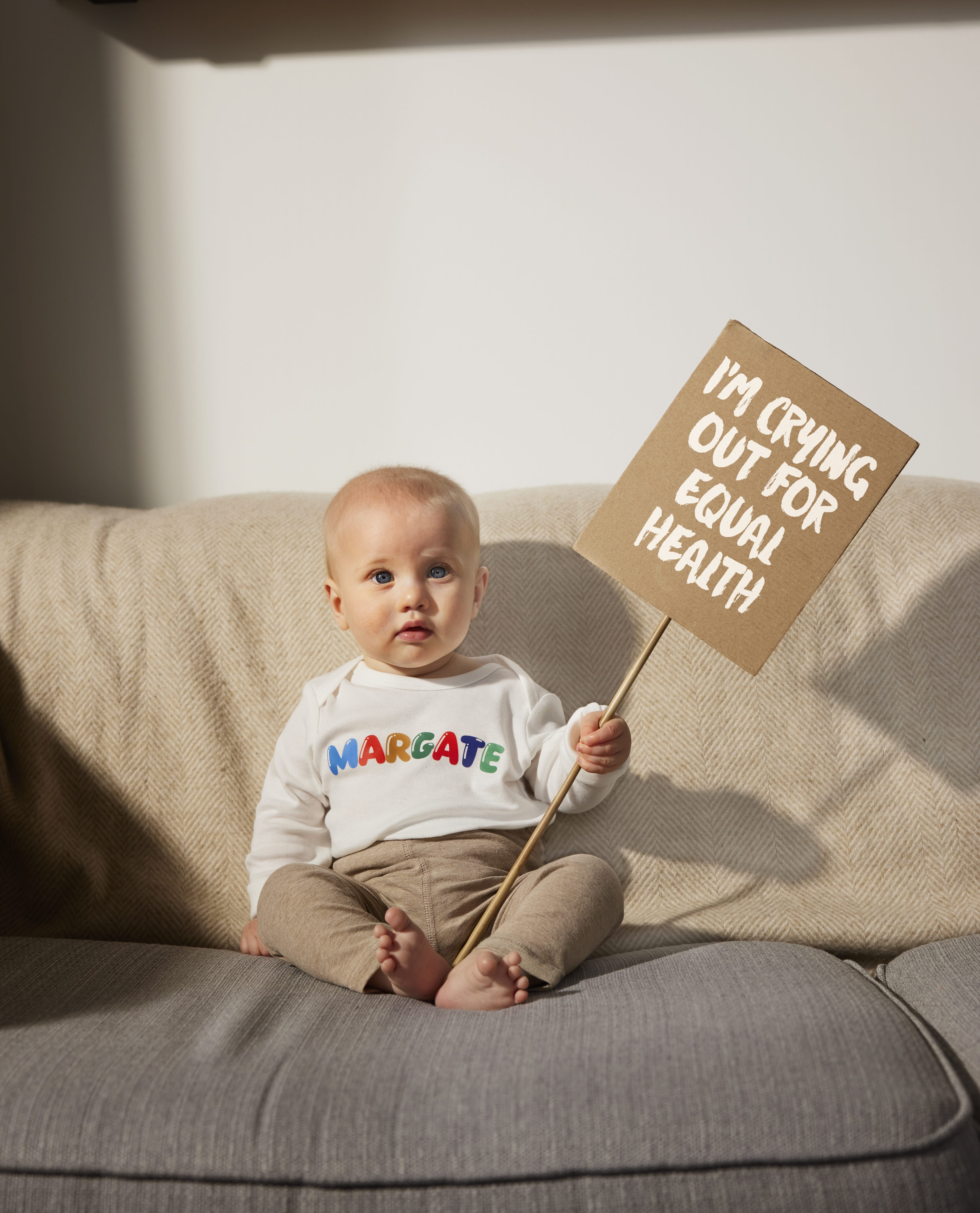MAKE HEALTH EQUAL IN THE SOUTH EAST

Discover the life expectancy in your area
The number of years a person can expect to live is affected by many things, from good-quality homes, to neighbourhoods with green space and clean air.
Discover the life expectancy where you live.
LIFE EXPECTANCY
The world around us shapes our health and wellbeing.
From quality homes that are warm and safe, to stable jobs, social connections, and neighbourhoods with green space and clean air, these are the building blocks that have a lasting and positive impact on people’s health, and reduce health inequalities.
In the South East and across the UK, these building blocks are not available to everyone, or not at the quality needed.
WE ASKED PEOPLE IN MARGATE WHAT THEY THINK THE AVERAGE LIFE EXPECTANCY IN THEIR AREA IS, AND THE THINGS THAT CONTRIBUTE MOST TO THEIR HEALTH.
Find out what they said…
-
Supporting people with disabilities, vulnerabilities and special educational needs Robin Putney is a Trustee and Volunteer at Thanet Disabled Riding Centre – a Kent-based charity that supports children and young adults with many different physical and mental disabilities, vulnerabilities and special educational needs.
It provides individual tailored riding and mental health therapy sessions that challenge people to do things they wouldn’t usually do, helping to build strength and confidence and provide support for people with mental health problems in a safe and confidential environment.
Robin says ‘being outside is so important for your health. We provide a space where our clients have fun whilst exercising and learning in a safe and secure, open-air environment, near the seaside – often riding the horses down towards the beach.
‘Many families in Thanet are on low incomes, and with the cost-of-living crisis hitting hard – especially disabled people and families with disabled children – we only suggest a small voluntary donation from our clients.
‘Our services are in great demand – and we know they can be life changing – but we have limited resources and need more support to keep doing what we do.’
-
Essential baby items to vulnerable families Mama to Mama is the first and only baby bank service in Thanet, Kent.
We provide essential pre-loved items to vulnerable pregnant women, caregivers and children under 5, who are living in poverty. Mama to Mama is a charity committed to improving the lives of babies and children to give them the best start in life.
Mama to Mama started as a call to action by a local mother to provide essential newborn baby items to vulnerable families living in poverty through preloved donations. Growing to meet increased demand due to the cost of living crisis, Mama to Mama now supports children up to 5 years old. With no other resources available to these individuals Mama to Mama enables maternity, social and care works to make referrals for care packages which in turn helps them to build relationships and trust from the people they support
-
Avoiding unnecessary vehicle emissions Thanet District Council ran an Air Quality Awareness Campaign focusing on anti-idling to reduce vehicle emissions on Thanet Roads.
Residential properties in close proximity to busy roads are exposed to vehicle emission such as nitrogen dioxide and fine particles. These have health effects on young and old with pre-existing respiratory conditions and is linked to wider health impacts too.
Thanet District Council wanted to raise awareness and give people the information needed to make adjustments to reduce their exposure to these, as well as inform vehicle users that they also have a part to play, e.g. taking anti-idling measures, going electric, or using transport alternatives.
Let’s #MakeHealthEqual
Sign up to join our campaign network and receive updates on how you can help shape a society where each of us has the best chance of good health, no matter where we’re born.
Sign up to find out more about our campaigns and how you can help shape a society where each of us has the best chance of good health, no matter where we’re born.


